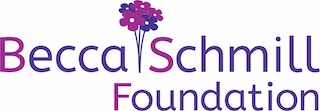May is National Mental Health Awareness month and an opportunity to focus our attention on the current youth mental health crisis. It is crucially important to understand that our youth were already in crisis prior to the pandemic. Rates of depression, anxiety, suicide, and eating disorders among adolescent and young adults had been quickly trending upward for more than a decade. According to the CDC, the rate of suicide for 10 to 24-year-olds increased nearly 60% between 2007 and 2018.
One of the reasons we started the Becca Schmill Foundation was to engage the community in conversations about difficult topics. We target issues such as preventable trauma (sexual assault), gaps in the youth safety net (drug accessibility), and harmful common occurrences (bullying), that have devastating effects on millions of teens, pre-teens, and their families. While these issues have been around for generations, thanks to social media, youth today experience them much differently than in the past.
- Sexual exploitation was certainly prevalent in past generations, but social media has significantly increased predator access to potential victims and has provided the opportunity for a devastating new form of blackmail called sextploitation (threatening to post nude pictures or compromising videos on social media).
- Drugs were also prevalent in past generations, but back then a 13-year-old was not able to order Xanax (which unknown to them could be laced with Fentanyl) from their bedroom and have it delivered to their front door. It’s as easy as ordering a pizza, but often deadly.
- Bullying was also prevalent in past generations, but social media has enabled the kind of unbearable public humiliation and anonymous attacks that have ruined lives and often led to youth suicide.
Social media is not the only factor contributing to the youth mental health crisis, but it no doubt is playing a significant role. The bright side here is that we have the ability to reverse the trend:
- Start by getting educated on the topic. One opportunity to do this is coming up on Sunday May 1 at 2:00pm EDT, when the Becca Schmill Foundation hosts “Social Media and Our Youth: A VIRTUAL Mental Health Forum.” At this event you’ll hear about social media’s substantial negative impact on youth mental health from nationally recognized and esteemed researchers, child/adolescent mental health professionals, and educators. Register here for this free event.
- If you live in Massachusetts, join us in asking for policies that protect children by endorsing these letters to the Massachusetts Education Commissioner and Massachusetts Legislators.
- If you live outside of Massachusetts, feel free to copy the letters and send them to your own state policymakers.
- Talk to your child’s school administrator about your concerns, and ask other parents to as well.
These steps may not completely solve the problem, but they represent progress that will ultimately reduce the rates of mental illness and save young lives.
This is exactly what the Becca Schmill Foundation hopes to inspire. Change that saves lives. We recognize that all of us together is the key to succeeding in that mission. In 2021, your generosity made it possible to offer significant support to the Boston Medical Center Catalyst Clinic’s work to improve substance use treatment for adolescents and young adults. We have continued our collaboration with the Clinic as part of a new Youth Overdose Prevention Committee. In 2022, so far, we have helped shed light on social media as one of the primary factors of the deterioration of our children’s mental health. We have funded a study by the Boston Children’s Hospital Strategic Training Initiative for the Prevention of Eating Disorders, the results of which are already being shared as testimony to improve related legislation. In addition, we are bringing the youth voice into our advocacy through our Youth Advisory Council. And there is much more to come in 2022 (see upcoming events below).
We hope you will continue to walk this difficult journey with us, in any way you can. We are thankful for your support and for your partnership.
Gratefully,
Deb and Stu Schmill
Becca Schmill Foundation Events:
- Sunday May 1 at 2:00pm EDT – “Social Media and Our Youth: A VIRTUAL Mental Health Forum.” Free and open to the public. Learn more, register and spread the word.
- Sunday August 21 – Observance of the first National Fentanyl Overdose Prevention and Awareness Day. Details TBD.
- Saturday October 1 (evening) – Comedian Jimmy Tingle headlines our “Humor for Humanity Fundraiser,” an in-person as well as virtual event.
Needham event we are collaborating on:
- Wednesday May 10 at 3:30pm EDT – Live at Needham Town Hall. Dr. Patricia Conrod and special appearance by Joe Clement and Matt Miles. This is a special presentation for anyone who works with youth. Dr. Patricia Conrod is a renowned researcher at The University of Montreal, with a focus on how screen time can cause increases in anxiety in youth. Dr. Conrod will discuss the science behind this, and will offer practical tips for regulating screen time and dealing with anxiety. Joe Clement and Matt Miles, teachers and authors of the book “Screen Schooled,” will join after Dr. Conrod’s presentation to discuss how the increased use of screens in schools are having a negative impact on children’s ability to learn.
To register: Email Jennifer Pinto (jpinto1@bidneedham.org)


